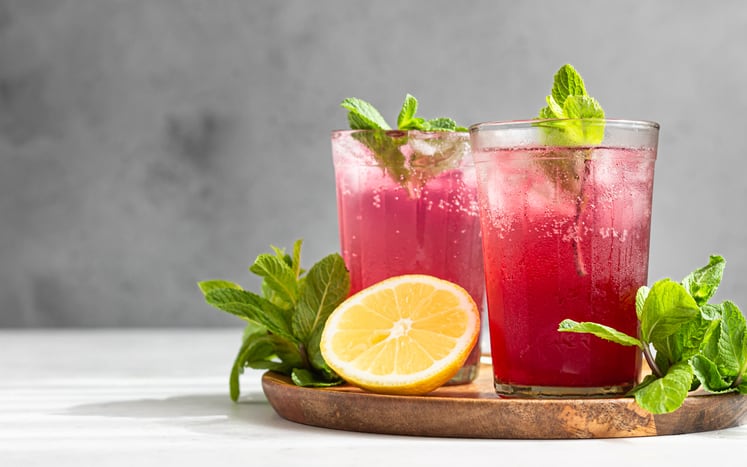Energy
For Niki Kennedy, Senior Strategic Insights & Analytics Manager, at Glanbia Nutritionals, energy is of upmost importance to today’s consumers.
According to functional food and beverage research done by The Hartman Group in April 2020, hydration and energy were the top two functional attributes of consumers who were currently using/interested in functional beverages.
“And as the world begins to open up and consumers start to ramp up their on-the-go lifestyles, we predict a fresh look at energy to re-emerge,” she told us.
“Many traditional energy brands were able to sustain business during the pandemic because even though routines changed dramatically for many, a large amount of energy was required to adjust.
“As we look to the future, we predict both increasing energy naturally and winding down or calming after a long day will be attributes consumers may look to beverages to support. Plant-based energy or calming ingredients may be receiving more attention as emerging beverage brands start to innovate with products like sparkling energy or relaxation waters with botanical extracts like ginseng, guarana and hemp infusions.”
Mental health
John Kelly, Senior Strategic Marketing Manager – Beverages, Kerry Europe and Russia, puts the spotlight on a younger generation thinking increasingly about their mental health.
“For younger audiences, health priorities extend towards mental health with 54% of people under 40 years of age claiming to have stressful lifestyles. With less certainty about what the future holds, this cohort is the most likely to attach high importance to mental health issues since the start of the pandemic and express positive interest in products that can help.
“Shifting priorities towards immunity and mental health support are underpinned by the finding that two-thirds of European consumers are now putting more of an effort into living healthily and are willing to pay a premium for products that support this. The strategic importance of millennials should not be underestimated, with our new research revealing that adults under 40 years of age.”
Kerry recently surveyed more than 6,500 people across North America, Europe, Latin America, Asia Pacific and Africa on the perceived benefits of botanicals. It found that mental wellness was one of the top themes consumers associate with botanicals: alongside cognitive and energy support.
Digestive health and protein power
Johan Cerstiaens, Commercial Director of fruit and vegetable ingredients supplier SVZ, identifies fermented beverages and protein beverages as two trends to watch.
“SVZ has noticed an increasing awareness of fermented ingredients’ health credentials and their potential to support digestive health – indeed, the global fermented drinks market is forecasted to grow at a CAGR of 6.2% between 2020 and 2025.
"As a result, NPD teams are seeking fermented fruit and vegetable ingredients to add to their drinks, which don’t compromise on taste. SVZ’s new fermented red beet and carrot ingredients are one such choice – our natural fermentation process means that there is no need for citric acid, resulting in a long-lasting, mild taste that is perceived as less sour or acidic compared to traditional ingredients.
“Additionally, we are seeing significant appetite for protein beverages as consumers seek to bolster their healthiness and wellbeing. We predict this to remain one of consumers’ key considerations when choosing their beverages, and as a result we are seeing manufacturers seeking protein-rich fruit and vegetable ingredients to add to their formulations.
"Some examples include kiwis, blackberries, apricots, beans, peas, and spinach, which are great options for manufacturers to harness when seeking to offer beverages with a higher protein count.”



